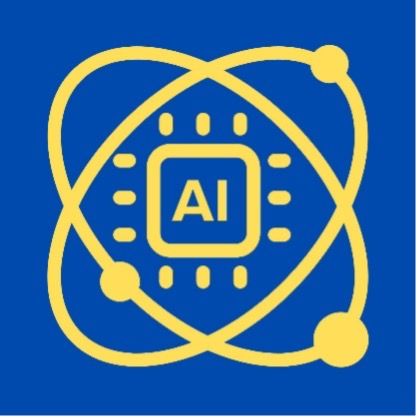
With their unique skill set of analyzing and interpreting large datasets, data scientists are now at the forefront of many industries where AI is making a significant impact. We’re already seeing the partnership of AI and data science impacting the healthcare, financial services, retail and automotive industries. Let’s take a deeper look!
How AI & Data Science are Changing Healthcare
CourseReport says that after completing a coding bootcamp, data scientists can find healthtech industry opportunities and earn an average salary of $106,000.
Some of the healthtech and wellness platforms include:
• ClosedLoop
• Tempus
• Peloton
• Orangetheory
Meanwhile, data scientists use AI algorithms to analyze patient data, predict diseases, and develop personalized treatment plans. By leveraging machine learning and deep learning techniques, medical professionals can diagnose diseases more accurately and efficiently. Moreover, AI-powered chatbots are being utilized to provide round-the-clock patient support and answer common medical queries.
Traditionally, radiologists would manually analyze X-rays, CT scans, and MRIs to identify abnormalities or signs of disease. However, with the advent of AI, algorithms can now analyze these images and highlight potential areas of concern, assisting radiologists in their diagnosis.
Data scientists are also collaborating with healthcare providers to develop AI-driven tools that can automate administrative tasks, such as medical record maintenance and appointment scheduling. By automating these processes, healthcare professionals can focus more on patient care and spend less time on paperwork.
Understanding the Impact of AI & Data Science on Retail

Data scientists are leveraging AI algorithms to revolutionize the way retailers operate. One of the key areas where AI and data science are making a significant impact is customer behavior analysis. By harnessing the power of machine learning models, retailers can gain a deep understanding of their customer’s preferences, buying patterns, and even their future needs.
Fashion retailer H&M has been using AI in several impactful ways, including:
Keeping the best items available to customers — Algorithms analyze store receipts and returns, helping them identify items to promote and re-stock in specific stores.
Predicting what the market demands — Data predicts what the market wants and avoids situations where managers must discount products just to move them out of stores.
Automating company warehouses — To compete with quick delivery services, automated warehouses empower companies like H&M to offer next-day deliveries for most European markets. This can also be an exclusive perk for loyal customers.
Personalized offline customer experience — RIFD technology enables customers to get personalized online recommendations in H&M’s physical stores.
Tailor-made clothing — AI technology is evolving to learn how to respond to very specific customer requirements. This level of personalization boosts customer satisfaction, drives sales, and fosters long-term customer loyalty.
Furthermore, AI and data science enable retailers to optimize their pricing strategies. Retailers can dynamically adjust their prices by analyzing market trends, competitor pricing, and customer behavior to maximize revenue and profitability.
AI algorithms can identify patterns and correlations in pricing data, helping retailers determine the optimal price points for their products and services. This data-driven approach to pricing ensures that retailers remain competitive while maximizing their bottom line.
The Growing Role of AI & Data Science in Automotive Industries

Data scientists are working with automakers to develop self-driving cars, improve vehicle safety, and enhance the overall driving experience. Consider how autonomous vehicles can navigate roadways, detect obstacles, and make real-time decisions.
Data scientists also collaborate with automotive manufacturers to develop AI-powered predictive maintenance systems. These systems monitor vehicle performance and can detect potential issues before they occur, reducing downtime and minimizing repair costs. Additionally, AI-driven algorithms are being used to optimize energy consumption in electric vehicles, increasing their range and efficiency.
With the help of AI and data science, automakers can develop ADAS systems that can accurately interpret sensor data and make split-second decisions to ensure the safety of drivers and other road users.
For example, AI algorithms can analyze data from cameras and sensors to detect and classify objects on the road, such as pedestrians, cyclists, and other vehicles. This information is then used to provide timely warnings or appropriate actions to prevent accidents.
Another area where AI and data science are revolutionizing the automotive industry is vehicle customization. With AI and data science advancements, automakers can offer personalized and customizable vehicles to meet individual customers' unique preferences and needs. Examples include:
• Interior design
• Entertainment systems
• Safety features
With the increasing focus on reducing carbon emissions and transitioning to electric vehicles, data scientists are working with automakers to optimize the performance and range of electric vehicles. AI algorithms can also optimize the energy consumption of electric vehicles. This increases the range of electric vehicles and reduces the overall environmental impact of transportation.
Exploring AI & Data Science in the Financial Services Industry
Data scientists use AI algorithms to analyze market trends, predict stock prices, and develop trading strategies. AI also helps financial institutions build learning models to make data-driven investment decisions and mitigate risks.
According to NTT Data:
• 83 percent of financial services executives say AI is creating new ways to differentiate offerings and win customers
• 81 percent said that AI is critical to their strategy to attract and retain customers
AI-powered chatbots are being utilized to provide personalized recommendations, answer queries, and facilitate transactions. These chatbots employ natural language processing algorithms, enabling them to understand and respond to customer inquiries in real-time. They can analyze customer preferences and transaction history to offer tailored financial advice, ultimately enhancing the overall customer experience.
By analyzing large volumes of transaction data, AI algorithms can identify patterns of fraudulent behavior and alert financial institutions. Additionally, integrating AI and data science has facilitated the development of advanced risk management systems. When it comes to regulatory challenges, AI can automate the process of monitoring and analyzing vast amounts of data to ensure compliance with these regulations.
Financial advisors use AI and data science to develop personalized financial planning tools. These tools leverage machine learning algorithms to analyze financial data, such as income, expenses, and investment goals, to provide tailored financial plans. This helps clients make informed decisions about their finances and achieve their long-term financial goals.
Data Scientists & AI: A Powerful Combination

From healthcare to retail, automotive to finance, data scientists leverage AI to drive innovation, enhance operations, and improve customer experiences. As AI technology continues to advance, data scientists will play an increasingly vital role in shaping the future of industries and unlocking their full potential.
It’s a great time to become a data scientist. If you want to elevate your career in this game-changing industry, you can join others like you in our Data Science Bootcamp.
Or, if you’re ready to learn ways to apply AI to your work, you can sign up for a special limited time/limited seat opportunity to take our 8-Week Applying AI Course.

